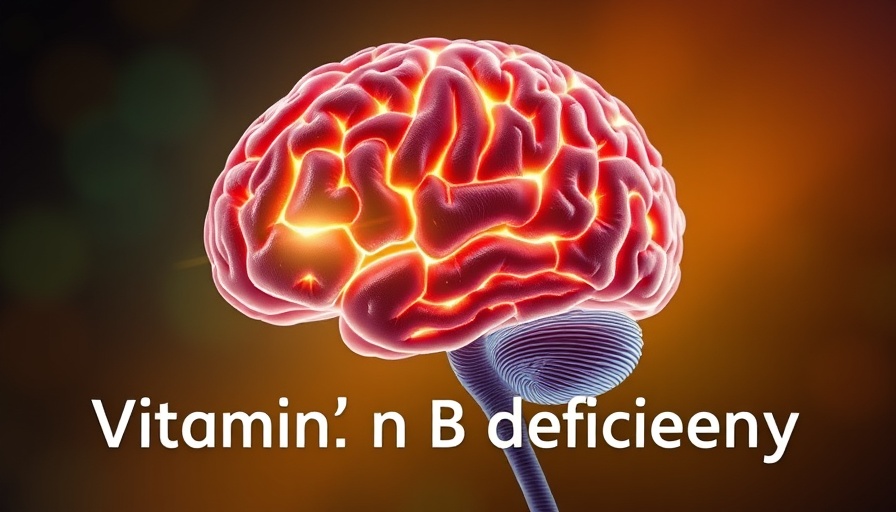
Understanding the Vital Role of B Vitamins
B vitamins, often dubbed as the energy vitamins, are essential for various bodily functions. These water-soluble vitamins—B1, B2, B3, B5, B6, B7, B9, and B12—play unique roles in converting food into energy, supporting brain function, and maintaining overall health. Unfortunately, these vitamins are not stored in the body, which means they need to be replenished regularly through our diet or supplementation.
In 'What happens if your vitamin B is low?', the discussion delves into the critical importance of B vitamins and their physical manifestations when levels drop, prompting us to analyze symptoms and solutions.
Signs of Vitamin B Deficiency: What to Look For
As women aged 50 to 70, understanding the symptoms of low B vitamin levels becomes crucial for maintaining overall health. A deficiency can express itself in several ways, often intertwining with daily life and well-being. Here are some common signs:
- Fatigue and Weakness: Constant tiredness despite adequate sleep may signal low vitamin B levels, particularly B1 and B12, which are vital for energy production.
- Cognitive Issues: Forgetfulness or confusion can be linked to a deficiency in B12, which is crucial for brain health.
- Anemia: Insufficient B12 and folate can lead to anemia, causing fatigue and pale skin—issues that are more common as we age.
- Mood Changes: Low levels of B6 and B12 can contribute to mood swings, depression, and anxiety, making mental health management extremely important.
- Digestive Problems: Symptoms like nausea and constipation may arise from deficiencies in B1, B2, B3, and B6.
Why Deficiencies Occur
So, why might women, especially those in their 50s and 60s, find themselves battling deficiencies? Several factors contribute:
- Poor Diet: A diet lacking in fruits, vegetables, whole grains, and proteins can easily lead to deficiencies.
- Malabsorption Disorders: Conditions like Crohn's disease or taking medications that affect digestion can impair the absorption of these vital nutrients.
- Ageing: With age, the body’s ability to absorb B vitamins—especially B12—may decline, necessitating a more vigilant approach to diet.
- Pregnancy: Increased nutrient needs during pregnancy and breastfeeding can heighten the risk of deficiencies or complications.
Correcting Vitamin B Deficiency
If you suspect low B vitamin levels, it’s crucial to consult with a healthcare professional who can recommend appropriate tests and treatments. Here are some actionable insights:
- Dietary Changes: Incorporating foods rich in B vitamins, such as leafy greens, dairy, lean meats, eggs, nuts, and whole grains, can make a significant difference.
- Supplements: For severe deficiencies, your doctor might recommend B-complex supplements to balance levels quickly and effectively. Always consult a healthcare provider before beginning any new supplement routine.
- Injections: In extreme cases, such as severe B12 deficiency, injections may be necessary to bypass absorption issues.
The Importance of Regular Check-ups
Understanding how B vitamin deficiencies can affect you not only empowers you to take action but also emphasizes the importance of regular health check-ups. As our bodies change with age, so do our nutritional needs. It’s worth prioritizing a balanced diet rich in various nutrients to safeguard against potential health issues.
In conclusion, recognizing the signs of vitamin B deficiency is the first step toward a healthier, more vibrant life. If you or someone you know might be experiencing symptoms of deficiency, don't hesitate to reach out to a healthcare professional. Prioritizing a balanced diet and regular health checks can significantly impact overall wellness, making it easier to thrive as we age.
 Add Row
Add Row  Add
Add 




Write A Comment